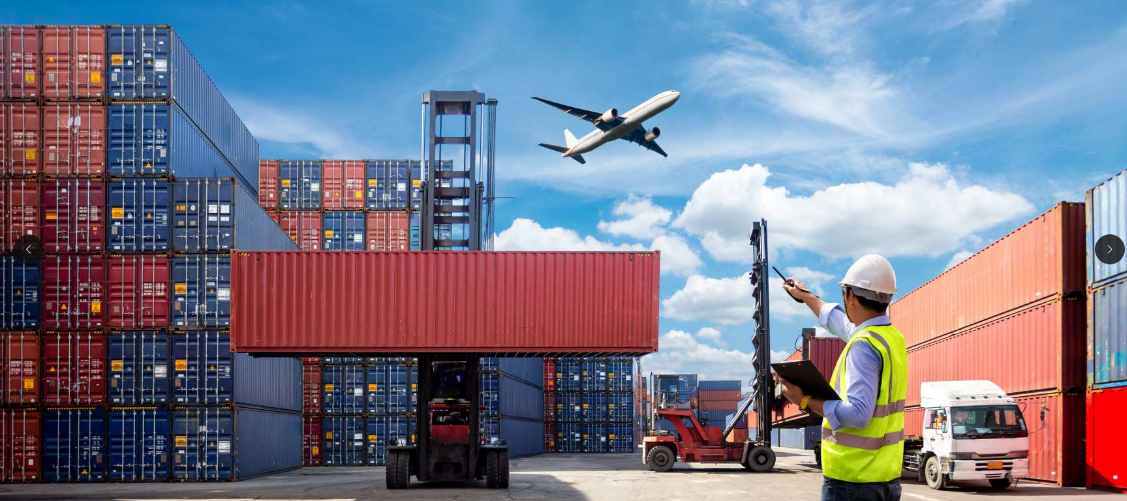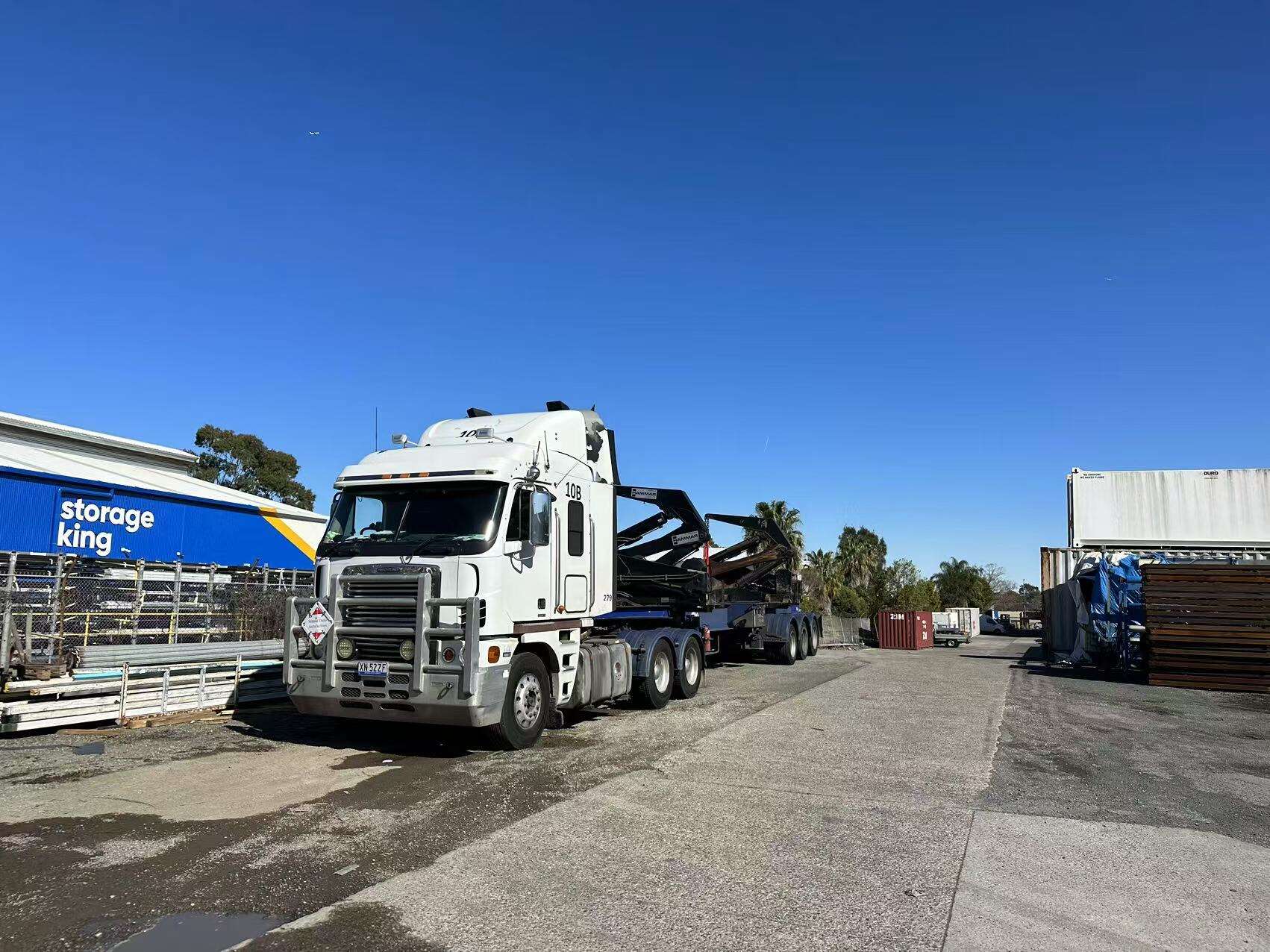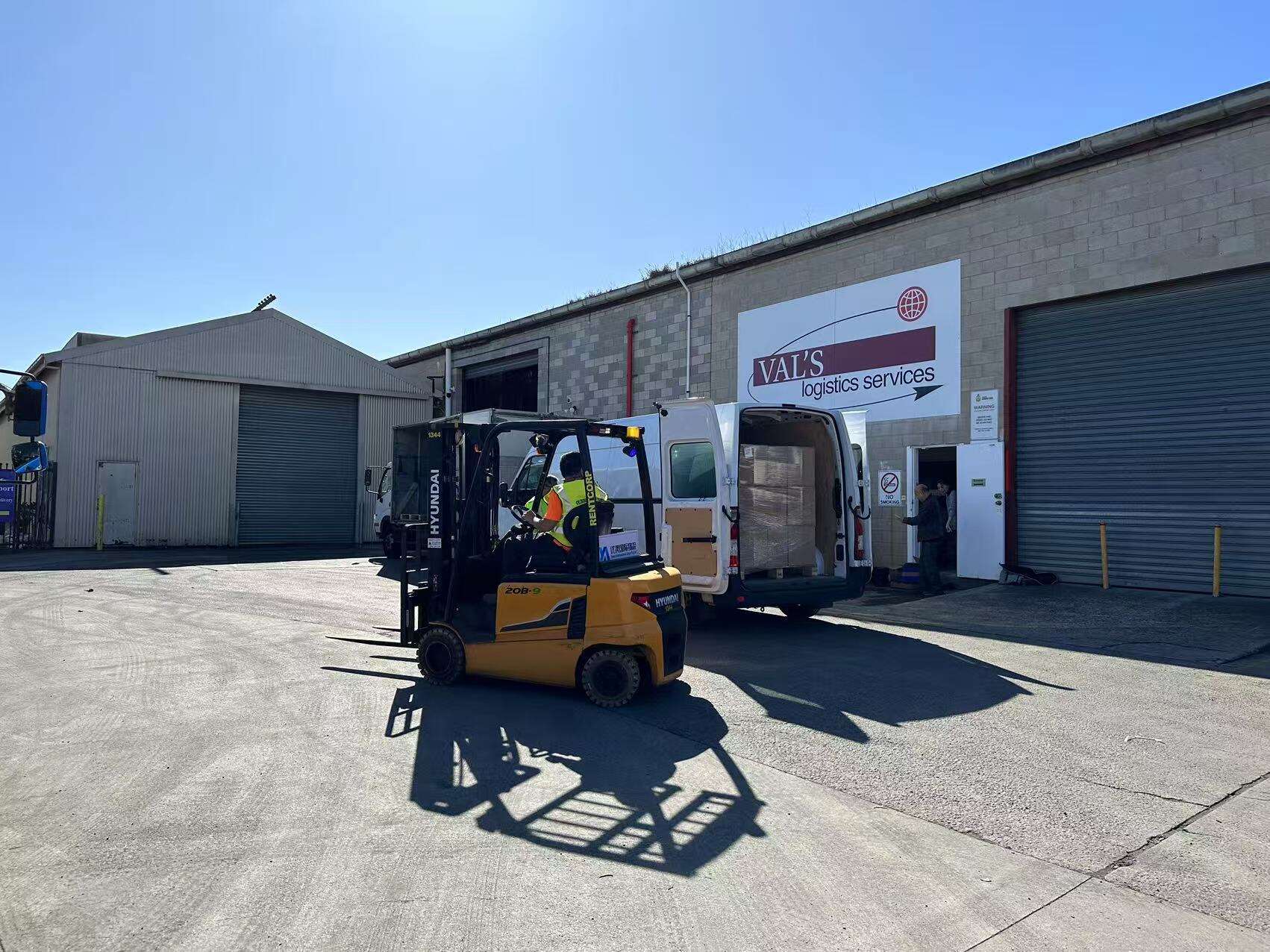ການປະສານງານດ້ານຈັດການຂົນສົ່ງແບບພື້ນຖານ ແລະ ການຈັດການຫ້ອງການສະຫງວນທົ່ວໂລກ
ການເຂົ້າໃຈບົດບາດຂອງຜູ້ສົ່ງອອກສິນຄ້າໃນປະສິດທິພາບຂອງຫ້ອງການສະຫງວນທົ່ວໂລກ
ໃນໂລກຂອງການຂົນສົ່ງສາກົນ ຜູ້ຈັດການຂົນສົ່ງມີບົດບາດສຳຄັນໃນຖານະຜູ້ປະສານງານທີ່ຄຸມວິທີການຂົນສົ່ງຕ່າງໆ ສະຖານທີ່ເກັບສິນຄ້າ ແລະ ເອກະສານທັງໝົດທີ່ຈຳເປັນເພື່ອໃຫ້ສິນຄ້າໄຫຼລົ່ນໄປຢ່າງຕໍ່ເນື່ອງໂດຍບໍ່ມີການຊັກຊ້າທີ່ບໍ່ຈຳເປັນ. ໃນເວລາທີ່ກ່ຽວຂ້ອງກັບການຂົນສົ່ງສິນຄ້າຂ້າມຊາຍແດນຢ່າງມີປະສິດທິພາບ, ຜູ້ຊ່ຽວຊານເຫຼົ່ານີ້ຮູ້ດີວ່າຈະຕ້ອງເຊື່ອມໂຍງຂໍ້ກຳນົດດ້ານພາສີເຂົ້າກັບເວລາຂອງບໍລິສັດຂົນສົ່ງແນວໃດ. ຕາມຂໍ້ມູນອຸດສາຫະກໍາຈາກ IMD ໃນປີ 2023, ການປະສານງານແບບນີ້ສາມາດຊ່ວຍຫຼຸດເວລາທີ່ຕ້ອງລໍຖ້າຢູ່ທ່າເຮືອລົງໄດ້ປະມານ 18 ຫາ 22 ເປີເຊັນ ຖ້າປຽບທຽບກັບບໍລິສັດທີ່ພະຍາຍາມຈັດການທຸກຢ່າງດ້ວຍຕົນເອງ. ຜູ້ຈັດການຂົນສົ່ງສ່ວນຫຼາຍຈະຮ່ວມມືກັບບໍລິສັດຂົນສົ່ງຕ່າງໆ ລະຫວ່າງ 7 ຫາ 12 ແຫ່ງຕໍ່ເສັ້ນທາງຂົນສົ່ງໃດໜຶ່ງ. ເຄືອຂ່າຍນີ້ຊ່ວຍໃຫ້ພວກເຂົາສາມາດປ່ຽນເສັ້ນທາງໄດ້ຢ່າງວ່ອງໄວເມື່ອມີບັນຫາເກີດຂຶ້ນ ເຊັ່ນ: ການປິດທ່າເຮືອທີ່ບໍ່ຄາດຄິດໃນຊ່ວງຂັດແຍ້ງດ້ານແຮງງານ ຫຼື ການຈາລະຈອນໜາແໜ້ນໃນຊ່ວງເວລາທີ່ມີກິດຈະກຳຫຼາຍໃນແຕ່ລະປີ.
ຜູ້ຊ່ຽວຊານດ້ານການຂົນສົ່ງສາກົນຊ່ວຍໃຫ້ການດຳເນີນງານຂົນສົ່ງສາກົນມີປະສິດທິພາບແບບໃດ
ເມື່ອຜູ້ສົ່ງອອກເຂົ້າໃຈວິທີການລວມສິນຄ້າຢ່າງຖືກຕ້ອງ ແລະ ສາມາດນຳທາງຜ່ານຂໍ້ກຳນົດທີ່ຊັບຊ້ອນໄດ້, ພວກເຂົາສາມາດຫຼຸດຄ່າໃຊ້ຈ່າຍໃນການຂົນສົ່ງໃຫ້ແກ່ທຸລະກິດຂະໜາດນ້ອຍ ແລະ ຂະໜາດກາງລົງໄດ້ປະມານ 24 ຫາ 37%. ສິ່ງນີ້ເກີດຂຶ້ນເນື່ອງຈາກເຄື່ອງບັນຈຸສິນຄ້າຖືກເຕີມຢ່າງມີປະສິດທິພາບຫຼາຍຂຶ້ນເມື່ອຜູ້ຊ່ຽວຊານດຳເນີນການບັນຈຸ. ເມື່ອພິຈາລະນາການວາງແຜນເສັ້ນທາງ, ບໍລິສັດທີ່ນຳໃຊ້ການວິເຄາະຄາດຄະເນຈະເຫັນການປັບປຸງຢ່າງຫຼວງຫຼາຍ. ເວລາຈັດສົ່ງມີຄວາມແຕກຕ່າງໜ້ອຍລົງ - ຈາກປະມານ 5.8 ວັນ ລົງເຫຼືອພຽງ 1.2 ວັນ ໃນເສັ້ນທາງທີ່ມີການຈະລາຈອນຫຼາຍລະຫວ່າງ ເອເຊຍ ແລະ ຢູໂຣບ ຕາມລາຍງານລ້າສຸດຂອງ AiristaFlow. ປັດໃຈທີ່ແທ້ຈິງທີ່ປ່ຽນແປງເກມມາຈາກການຮັກສາໃຫ້ທຸກພາກສ່ວນທີ່ກ່ຽວຂ້ອງເຂົ້າກັນໄດ້. ເມື່ອບໍລິສັດຂົນສົ່ງດ້ວຍລົດບັນທຸກຮ່ວມມືຢ່າງໃກ້ຊິດກັບຜູ້ຂົນສົ່ງ conainer ແລະ ທ່າເຮືອ, ລະບົບອັດຕະໂນມັດຈະປ້ອງກັນບັນຫາການສົ່ງຕໍ່ທີ່ເຮັດໃຫ້ເກີດຄວາມລ່າຊ້າສ່ວນໃຫຍ່. ພວກເຮົາກຳລັງເວົ້າເຖິງການຫຼີກລ່ຽງບັນຫາປະມານ 8 ໃນ 10 ທີ່ເປັນໄປໄດ້ ທີ່ສິນຄ້າອາດຈະຕິດຄ້າງ ແລະ ຮໍຖ້າຢູ່ທີ່ທ່າລົດ ຫຼື ທ່າເຮືອ.
ຄວາມແຕກຕ່າງຫຼັກລະຫວ່າງຜູ້ຂົນສົ່ງທົ່ວໄປ ແລະ ການບໍລິການຂົນສົ່ງຢ່າງຄົບວົງຈອນ
ໃນຂະນະທີ່ຜູ້ຂົນສົ່ງແບບດັ້ງເດີມເນັ້ນໃນການຂົນສົ່ງຈາກທ່າເຮືອໄປທ່າເຮືອເທົ່ານັ້ນ, ຜູ້ຊ່ວຍຂົນສົ່ງຢ່າງຄົບວົງຈອນຈະສະໜອງ:
- ການປະສານງານຂົນສົ່ງຫຼາຍຮູບແບບ : ການຈັດຕັ້ງເວລາການຂົນສົ່ງທາງທະເລ/ທາງອາກາດ/ທາງລົດໄຟ ໂດຍໃຊ້ເອກະສານທີ່ເປັນເອກະພາບ
- ການຫຼຸດຜ່ອນຄວາມສ່ຽງ : ປະກັນພາສີສິນຄ້າ ທີ່ມີຄວາມໄວໃນການດໍາເນີນການຮ້ອງຂໍ 94.6% ເມື່ອທຽບກັບນະໂຍບາຍທີ່ຊື້ແຍກຕ່າງຫາກ
- ການປ້ອງກັນຄວາມຖືກຕ້ອງຕາມກົດລະບຽບ : ຂໍ້ມູນທີ່ຖືກອັບເດດຄຸມເຖິງລະຫັດພາສີສໍາລັບ 190 ປະເທດຂຶ້ນໄປ
ຮູບແບບທີ່ຖືກບູລິມານີ້ຊ່ວຍຫຼຸດອັດຕາການຂັດແຍ້ງຂອງການຂົນສົ່ງລົງ 61% ຖ້າທຽບກັບການຈັດການດ້ານການຂົນສົ່ງທີ່ແຍກສ່ວນ (Stefanini 2023), ໂດຍສະເພາະສໍາລັບສິນຄ້າທີ່ຕ້ອງການຄວບຄຸມອຸນຫະພູມ ຫຼື ສິນຄ້າທີ່ມີມູນຄ່າສູງທີ່ຕ້ອງການການຈັດການພິເສດ.
ພາສີສິນຄ້າ, ຄວາມຖືກຕ້ອງຕາມກົດລະບຽບ ແລະ ຄວາມຊໍານິຊໍານານດ້ານກົດໝາຍ
ຄວາມສໍາຄັນຂອງການແຈ້ງພາສີສຳລັບການຂົນສົ່ງຂ້າມຊາຍແດນ
ການຜ່ານດ່ານສາກົນທີ່ລຽບງ່າຍແມ່ນສິ່ງຈຳເປັນເພື່ອຫຼີກລ້ຽງການຄ້າງຂອງສິນຄ້າຕາມຊາຍແດນ, ໂດຍສະເພາະສຳລັບສິນຄ້າທີ່ມີເວລາກຳນົດ. ຜູ້ໃຫ້ບໍລິການດ້ານການຂົນສົ່ງພາຍນອກສາມາດຫຼຸດເວລາການກວດກາດ່ານໄດ້ເຖິງ 40% ເມື່ອທຽບກັບການຍື່ນເອງ (ການວິເຄາະອຸດສາຫະກຳ 2024). ຄວາມຊຳນິຊຳນານຂອງພວກເຂົາໃນການຈັດປະເພດອາກອນ, ສິນຄ້າທີ່ຖືກຈຳກັດ ແລະ ຂໍ້ກຳນົດຂອງແຕ່ລະປະເທດ ຊ່ວຍໃຫ້ສິນຄ້າຫຼີກລ້ຽງການກວດກາ, ການປະຕິເສດ ຫຼື ຄ່າປັບໃໝ.
ເອກະສານ ແລະ ວຽກງານດ້ານການບໍລິຫານໃນການຂົນສົ່ງ ທີ່ດຳເນີນໂດຍຜູ້ຊ່ຽວຊານ
ຜູ້ຈັດການຂົນສົ່ງຈັດການເອກະສານສຳຄັນຫຼາຍກວ່າ 15 ຊຸດໃນແຕ່ລະການຂົນສົ່ງສາກົນ - ລວມທັງໃບເຊີ່ງຄ້າ, ໃບຢັ້ງຢືນຖິ່ນກຳເນີດ, ແລະ ໃບຮຽກເກັບເງິນຂົນສົ່ງ - ໂດຍຂໍ້ຜິດພາດເຫຼົ່ານີ້ເຮັດໃຫ້ເກີດການຊັກຊ້າດ້ານດ່ານ 23% (ການທบทວນການຄ້າໂລກ 2023). ລະບົບເຮັດວຽກດິຈິຕອນແບບມາດຕະຖານ ແລະ ການຢັ້ງຢືນອັດຕະໂນມັດ ຮັບປະກັນຄວາມຖືກຕ້ອງໃນການຈັດປະເພດລະຫັດ HS ແລະ ການປະຕິບັດຕາມໃບອະນຸຍາດສົ່ງອອກ.
ການຮັບປະກັນຄວາມສອດຄ່ອງກັບກົດລະບຽບການນຳເຂົ້າ/ສົ່ງອອກທີ່ມີການປ່ຽນແປງ
ດ້ວຍ 78 ປະເທດທີ່ໄດ້ປັບປຸງຂະບວນການດໍາເນີນພາສີໃນປີ 2023 ເທົ່ານັ້ນ, ຜູ້ສົ່ງອອກສິນຄ້າຈະຮັກສາລະບົບການຕິດຕາມກວດກາດ້ານກົດລະບຽບແບບເວລາຈິງ ເຊິ່ງຕິດຕາມການປ່ຽນແປງດ້ານການຫ້າມ, ຂໍ້ຈໍາກັດດ້ານກະສິກໍາ ແລະ ການຄວບຄຸມສິນຄ້າທີ່ສາມາດນໍາໃຊ້ໄດ້ສອງດ້ານ. ການແຈ້ງເຕືອນຈະຖືກເປີດໃນເວລາມີການປ່ຽນແປງ ເຊັ່ນ: ຂໍ້ກໍານົດໃໝ່ດ້ານໃບຢັ້ງຢືນສຸຂະອະນາໄມພືດ ຫຼື ການຂຶ້ນອາກອນຢ່າງທັນທີ, ເພື່ອໃຫ້ສາມາດປັບຕົວໄດ້ລ່ວງໜ້າ.
ການວິເຄາະຂໍ້ຂັດແຍ້ງ: ການຈັດສົ່ງຊ້າຍ້ອນການຈັດການພາສີ ແລະ ການປະຕິບັດຕາມກົດລະບຽບທີ່ບໍ່ພຽງພໍ
ການສຶກສາຂອງ IATA ໃນປີ 2023 ພົບວ່າ 34% ຂອງການລົ້ມເຫຼວໃນຫ້ອງການສະໜອງມາຈາກການປະຕິບັດດ້ານພາສີທີ່ບໍ່ດີ. ບັນຫາທົ່ວໄປລວມມີໃບເກັບເງິນທີ່ຖືກປະເມີນຄ່າຕໍ່າ ຊຶ່ງນໍາໄປສູ່ການກວດກາ ແລະ ໃບອະນຸຍາດທີ່ໝົດອາຍຸ ທີ່ເຮັດໃຫ້ສິນຄ້າທີ່ງ່າຍຈະເນົ່າເປື່ອຍເສຍຫາຍ. ການວິເຄາະຂອງ Global SCL ໃນປີ 2024 ສະແດງໃຫ້ເຫັນວ່າ ຜູ້ສົ່ງອອກທີ່ໃຫ້ຄວາມສໍາຄັນກັບການປະຕິບັດຕາມກົດລະບຽບ ສາມາດຫຼຸດຄວາມສ່ຽງທີ່ຈະຖືກຍຶດສິນຄ້າລົງໄດ້ 61% ຜ່ານການຄິດໄລ່ອາກອນລ່ວງໜ້າ ແລະ ການກວດກາຄວາມຖືກຕ້ອງຕາມກົດລະບຽບ.
ວິທີແກ້ໄຂການຂົນສົ່ງຈາກຕົ້ນທາງຮອດປາຍທາງ ແລະ ການລວມສິນຄ້າ
ວິທີແກ້ໄຂບັນຫາການຂົນສົ່ງແບບປະຕູສູ່ປະຕູເຮັດໃຫ້ການຂົນສົ່ງງ່າຍສໍາລັບທຸລະກິດ
ຜູ້ສົ່ງອອກສິນຄ້າທີ່ທັນສະໄໝຈັດການເດີນທາງຈາກຕົ້ນທາງຮອດປາຍທາງ ຕັ້ງແຕ່ການມາເກັບສິນຄ້າຈາກຜູ້ສະໜອງ ເຖິງການຈັດສົ່ງສຸດທ້າຍ, ເຮັດໃຫ້ບໍ່ຈຳເປັນຕ້ອງມີການຈັດການຫຼາຍໆ ຜູ້ຂົນສົ່ງ. ການຜະສົມຜະສານນີ້ຊ່ວຍຫຼຸດຜ່ອນພາລະງານດ້ານການບໍລິຫານລົງ 40% ຕາມການວິເຄາະຂອງຜູ້ຊ່ຽວຊານອຸດສາຫະກໍາ, ໃນຂະນະທີ່ຍັງປັບປຸງຄວາມຮັບຜິດຊອບ ແລະ ຄວາມສອດຄ່ອງຂອງການບໍລິການ.
ການຜະສົມຜະສານການມາເກັບສິນຄ້າ, ການຂົນສົ່ງ ແລະ ການຈັດສົ່ງສຸດທ້າຍ ໂດຍຜູ້ໃຫ້ບໍລິການດຽວ
ຜູ້ໃຫ້ບໍລິການຊັ້ນນຳ ຈັດການຂົນສົ່ງ con ທະເລ, ອາກາດ ແລະ ດິນ ໂດຍໃຊ້ເວທີຕິດຕາມທີ່ເປັນເອກະພາບ. ລູກຄ້າຈະໄດ້ຮັບຂໍ້ມູນປັບປຸງແບບເວລາຈິງໃນທຸກໆຈຸດກວດກາ, ເຮັດໃຫ້ສາມາດຕອບສະໜອງຕໍ່ການລ່ວງລ້າຂອງດ່ານ ຫຼື ສິ່ງກີດຂວາງທີ່ກ່ຽວຂ້ອງກັບດິນຟ້າອາກາດໄດ້ທັນເວລາ.
ໂຕ້ຕອບການຂົນສົ່ງ FCL ແລະ LCL ທີ່ຖືກປັບຕາມຂະໜາດ ແລະ ຄວາມສຳເລັດຂອງການຈັດສົ່ງ
ການບໍລິການ ການຂົນສົ່ງຕູ້ຄອນເທັນເນີເຕັມ (FCL) ສະໜອງໃຫ້ມີການຂົນສົ່ງທີ່ໄວຂຶ້ນສຳລັບການຈັດສົ່ງທີ່ມີປະລິມານຫຼາຍ ຫຼື ຕ້ອງການດ່ວນ, ໃນຂະນະທີ່ການແກ້ໄຂບັນຫາການຂົນສົ່ງຕູ້ຄອນເທັນເນີບໍ່ເຕັມ (LCL) ຊ່ວຍປະຢັດຄ່າໃຊ້ຈ່າຍໄດ້ 15-30% ຜ່ານການແບ່ງປັນພື້ນທີ່ຕູ້ຄອນເທັນເນີ. ຜູ້ຈັດການຂົນສົ່ງຈະວິເຄາະຂະໜາດຜະລິດຕະພັນ, ວຽກງານຂອງຈຸດໝາຍປາຍທາງ ແລະ ຕົວຊີ້ວັດດ້ານປະສິດທິພາບຄ່າໃຊ້ຈ່າຍເພື່ອກຳນົດຮູບແບບການຈັດໂຫຼດທີ່ເໝາະສົມທີ່ສຸດ.
ການເລືອກເສັ້ນທາງ ແລະ ການຫຸ້ມຫໍ່ສຳລັບປະສິດທິພາບການຂົນສົ່ງລະຫວ່າງປະເທດ
ການເລືອກຫີບຫໍ່ທີ່ທັນສະໄໝ, ເຊັ່ນ: ເຄື່ອງກ້ອງອາລູມິນຽມທີ່ຖືກນຳມາໃຊ້ແທນແທ່ນໄມ້, ຊ່ວຍຫຼຸດນ້ຳໜັກການຂົນສົ່ງດ້ວຍທາງອາກາດລົງ 23% (ການສຶກສາຈາກ Airbus 2024). ລະບົບສູດການຄິດໄລ່ເສັ້ນທາງຂັ້ນສູງຊ່ວຍດຸນດ້ານປະສິດທິພາບນ້ຳມັນ ເທິງເວລາຂົນສົ່ງ, ໂດຍການປ່ຽນເສັ້ນທາງເພື່ອຫຼີກເວັ້ນເຂດທີ່ມີການຄ້າງຂັດສູງສຸດ ເພື່ອຮັກສາຄວາມໜ້າເຊື່ອຖືໄວ້.
ຂໍ້ມູນເຊິ່ງສະແດງ: ຜູ້ຂົນສົ່ງປະຢັດໄດ້ເຖິງ 30% ຜ່ານການລວມໂຫຼດຢ່າງມີຍຸດທະສາດ (ແຫຼ່ງ: IATA, 2023)
ໂຄງການຂົນສົ່ງສິນຄ້າລວມເອົາຂະຫນາດກາງຈາກລູກຄ້າຫຼາຍຄົນເຂົ້າໃນຕູ້ຄອນເທັນເນີດຽວ, ເພື່ອເພີ່ມປະລິມານການບັນທຸກສິນຄ້າໃຫ້ຫຼາຍທີ່ສຸດ. ຕາມລາຍງານຂອງ IATA ບັນດາວິສາຫະກິດຂະຫນາດກາງປະຢັດໄດ້ປະມານ 740,000 ໂດລາສະຫະລັດຕໍ່ປີ ດ້ວຍວິທີການນີ້, ແລະ ສາມາດຜ່ານດ່ານສາການໄດ້ໄວຂຶ້ນ 28% ສຳລັບການຂົນສົ່ງທີ່ຖືກລວມເຂົ້າກັນ ເມື່ອທຽບກັບການຂົນສົ່ງທີ່ບໍ່ໄດ້ລວມ.
ການເບິ່ງເຫັນແບບດິຈິຕອນ ແລະ ເຄື່ອງມືຕິດຕາມສິນຄ້າແບບເວລາຈິງ
ບົດບາດຂອງການຕິດຕາມສິນຄ້າແບບເວລາຈິງໃນການຈັດການຂົນສົ່ງສິນຄ້າທີ່ທັນສະໄໝ
ການຕິດຕາມສິນຄ້າໃນຂະນະທີ່ມັນເດີນທາງຜ່ານຫ້ອງການຈັດສົ່ງ ສາມາດໃຫ້ບໍລິສັດເຫັນພາບລວມຢ່າງຊັດເຈນກ່ຽວກັບສິ່ງທີ່ເກີດຂຶ້ນຕະຫຼອດເສັ້ນທາງ. ບໍລິສັດດ້ານການຂົນສົ່ງໃນປັດຈຸບັນອີງໃສ່ລະບົບ GPS ແລະ ເຊັນເຊີ IoT ນ້ອຍໆທີ່ຕິດຢູ່ກັບຕູ້ຄອນເທີເນີເພື່ອຕິດຕາມວ່າສິ່ງຂອງໄປໃສ. ຕາມການຄົ້ນຄວ້າຂອງອຸດສາຫະກໍາໃນປີກາຍນີ້, ການຕິດຕາມແບບນີ້ຊ່ວຍຫຼຸດການຄາດເດົາກ່ຽວກັບເວລາທີ່ສິນຄ້າຈະມາຮອດລົງໄດ້ປະມານ 20%. ເມື່ອມີບັນຫາເກີດຂຶ້ນ - ເຊັ່ນ: ອາກາດເລວກະທຳລາຍເສັ້ນທາງຂົນສົ່ງ ຫຼື ມີການຈາລະຈອນທີ່ບໍ່ຄາດຄິດຢູ່ທ່າເຮືອໃຫຍ່ - ລະບົບຕິດຕາມເຫຼົ່ານີ້ຊ່ວຍໃຫ້ຜູ້ຈັດສົ່ງສາມາດເຂົ້າໄປແກ້ໄຂບັນຫາໄດ້ຕັ້ງແຕ່ເລີ່ມຕົ້ນ ກ່ອນທີ່ມັນຈະກາຍເປັນບັນຫາໃຫຍ່. ພ້ອມທັງ, ທຸກໆຄົນທີ່ກ່ຽວຂ້ອງກໍໄດ້ຮັບຂໍ້ມູນທີ່ຖືກອັບເດດຢ່າງໄວວາ ດັ່ງນັ້ນຈຶ່ງບໍ່ມີໃຜຕ້ອງຄິດໄລ່ວ່າສິນຄ້າຂອງເຂົາໄປຢູ່ໃສ.
แพลตฟอร์มเทคโนโลยีที่ช่วยให้การติดตามสินค้าโปร่งใส
ລະບົບຕິດຕາມຂັ້ນສູງລວບລວມຂໍ້ມູນຈາກການຂົນສົ່ງທາງທະເລ, ອາກາດ ແລະ ດິນເຂົ້າໃນແຜງຄວບຄຸມສູນກາງ. ເມື່ອຖືກເຊື່ອມໂຍງກັບການວິເຄາະທີ່ຄາດເດົາໄດ້, ແພລດຟອມເຫຼົ່ານີ້ຈະສະແດງຄວາມຜິດປົກກະຕິ ເຊັ່ນ: ອຸນຫະພູມທີ່ເບີກອອກຈາກຂອບເຂດທີ່ກຳນົດໄວ້ໃນສິນຄ້າທີ່ຕ້ອງຮັກສາໃຫ້ເຢັນ ຫຼື ການຫຼີກລ້ຽງເສັ້ນທາງທີ່ບໍ່ຄາດຄິດ. ການສຶກສາປີ 2023 ກ່ຽວກັບການຂົນສົ່ງຂ້າມຊາຍແດນພົບວ່າລະບົບດັ່ງກ່າວຊ່ວຍຫຼຸດຜ່ອນການກວດກາດ້ວຍຕົນເອງລົງ 40% ໃນຂະນະທີ່ເພີ່ມຄວາມຖືກຕ້ອງໃນການຈັດສົ່ງ.
ຍຸດທະສາດ: ການນຳໃຊ້ແຜງຄວບຄຸມດິຈິຕອນເພື່ອແກ້ໄຂບັນຫາຢ່າງທັນການ
ດ້ວຍແຜງຄວບຄຸມທີ່ສາມາດປັບແຕ່ງໄດ້, ບໍລິສັດຕ่างໆຈະໄດ້ຮັບການແຈ້ງເຕືອນອັດຕະໂນມັດ ແລະ ສາມາດປ່ຽນເສັ້ນທາງຂອງການຂົນສົ່ງຢ່າງມີຊີວິດຊີວາ. ເບິ່ງຕົວຢ່າງເຊັ່ນ: ທຽວເຮືອທີ່ຕິດຢູ່ໃນຄູຂຸດຊູອີດ ກໍຕາມ – ດຽວນີ້ຜູ້ຈັດການດ້ານການຂົນສົ່ງບໍ່ຈຳເປັນຕ້ອງນັ່ງວ່າງມືອີກຕໍ່ໄປ. ພວກເຂົາສາມາດປ່ຽນພາຫະນະສົ່ງໄປຍັງເສັ້ນທາງລົດໄຟ ຫຼື ບິນເຊົ່າໄດ້ຢ່າງວ່ອງໄວ ແລະ ສົ່ງຂໍ້ມູນປັບປຸງໃຫ້ທຸກຄົນທີ່ກ່ຽວຂ້ອງໃນຫ່ວງສາຍການຜະລິດ. ຜູ້ໃຫ້ບໍລິການລະບົບການຈັດການການຂົນສົ່ງຍັງລາຍງານເຖິງຜົນງານທີ່ດີເລີດອີກຢ່າງໜຶ່ງ. ລູກຄ້າຂອງພວກເຂົາມີເວລາໃນການຕອບສະໜອງຕໍ່ໄພພິບັດຫຼຸດລົງເກືອບສອງສາມສ່ວນໃນໄລຍະເວລາ ຊຶ່ງດີກວ່າວິທີການແບບດັ້ງເດີມທີ່ເຄີຍມີມາ.
ສຳລັບຜູ້ສົ່ງອອກສິນຄ້າ, ການນຳໃຊ້ເຄື່ອງມືເຫຼົ່ານີ້ບໍ່ແມ່ນພຽງແຕ່ດ້ານການດຳເນີນງານເທົ່ານັ້ນ, ແຕ່ຍັງເປັນຍຸດທະສາດອີກດ້ວຍ. ການເບິ່ງເຫັນແບບເວລາຈິງຊ່ວຍສ້າງຄວາມໝັ້ນໃຈໃຫ້ແກ່ລູກຄ້າ ແລະ ຂ້ຽນເສດຖານະທີ່ເສຍຄ່າໃຊ້ຈ່າຍສູງອອກຈາກເຄືອຂ່າຍສາກົນທີ່ຊັບຊ້ອນ.
ບໍລິການສະໜັບສະໜູນອື່ນໆ: ການເກັບຮັກສາສິນຄ້າ, ປະກັນໄພ ແລະ ຄຳແນະນຳດ້ານການຄ້າ
ການເກັບຮັກສາສິນຄ້າ ແລະ ປະກັນໄພສິນຄ້າ ເປັນສ່ວນໜຶ່ງຂອງບໍລິການຂົນສົ່ງແບບຄົບວົງຈອນ
ໃນເວລາທີ່ກ່ຽວຂ້ອງກັບການເຮັດໃຫ້ຫ້ອງການສະໜອງມີຄວາມຍືດຢຸ່ນຫຼາຍຂຶ້ນ, ຜູ້ສົ່ງອອກສິນຄ້າກໍາລັງເຮັດສິ່ງທີ່ຄ່ອຍຂີ້ປະດິດໃນປັດຈຸບັນ. ພວກເຂົາກໍາລັງນໍາເອົາບໍລິການເກັບຮັກສາສິນຄ້າ ແລະ ການຄຸ້ມຄອງປະກັນໄພເຂົ້າມາໃນສິ່ງທີ່ພວກເຂົາສະເໜີໃຫ້ແກ່ລູກຄ້າ. ໃຊ້ຕົວຢ່າງເຊັ່ນການຂົນສົ່ງຂ້າມສະຖານີ (cross docking) ຫຼື ການຖ່າຍໂອນສິນຄ້າ (transloading operations) ທີ່ຊ່ວຍໃຫ້ທຸລະກິດສາມາດຄຸ້ມຄອງລະດັບສິນຄ້າຂອງພວກເຂົາທີ່ຂຶ້ນລົງໂດຍບໍ່ຈໍາເປັນຕ້ອງໃຊ້ເງິນຈໍານວນຫຼວງຫຼາຍໃນການສ້າງສິ່ງອໍານວຍຄວາມສະດວກໃໝ່. ແລະ ນອກຈາກນັ້ນຍັງມີດ້ານການປະກັນໄພອີກດ້ວຍ. ການປົກປ້ອງສິນຄ້າແບບປັບແຕ່ງໄດ້ນີ້ຈະຄຸ້ມຄອງບັນຫາຕ່າງໆ ຕັ້ງແຕ່ສິນຄ້າເສຍຫາຍໃນຂະນະການຂົນສົ່ງ ຫາການຂົນສົ່ງຖືກລັກ ຫຼື ສູນເສຍຢ່າງສິ້ນເຊີງ. ຜູ້ສົ່ງອອກສ່ວນຫຼາຍຮູ້ດີກ່ຽວກັບການປະເມີນຄວາມສ່ຽງທີ່ອາດເກີດຂຶ້ນ ແລະ ມັກຈະສາມາດໄດ້ຮັບຂໍ້ຕົກລົງດ້ານປະກັນໄພທີ່ດີກວ່າທີ່ບໍລິສັດສ່ວນຫຼາຍສາມາດຈັດການໄດ້ດ້ວຍຕົນເອງ. ຕາມການຄົ້ນຄວ້າບາງຢ່າງຈາກອົງການການຄ້າໂລກ (World Trade Organization) ໃນປີ 2023, ປະມານສາມໃນສີ່ຂອງທຸລະກິດມີບັນຫາກ່ຽວກັບການຂາດພື້ນທີ່ເກັບຮັກສາ ແລະ ການຮັກສາຄວາມປອດໄພຂອງສິນຄ້າໃນຂະນະທີ່ຂົນສົ່ງຈາກສະຖານທີ່ໜຶ່ງໄປອີກແຫ່ງໜຶ່ງ.
ປະເພດຂອງການຄຸ້ມຄອງປະກັນໄພສິນຄ້າທີ່ມີຜ່ານຕัวແທນຈັດສົ່ງ
ນະໂຍບາຍພິເສດລວມມີ:
- ປະກັນໄພທຸກຄວາມສ່ຽງ : ການປົກປ້ອງຢ່າງຄົບຖ້ວນ ຍົກເວັ້ນພຽງແຕ່ສົງຄາມ ແລະ ຂໍ້ບົກພ່ອງທີ່ມີຢູ່ໃນໂຕມັນ
- ການຄຸ້ມຄອງຄວາມເສຍຫາຍທັງໝົດ : ຄ່າຊົດເຊີ້ຍສຳລັບການທຳລາຍສິນຄ້າທີ່ບໍ່ສາມາດກູ້ຄืนໄດ້
- ການປົກປ້ອງຄວາມເສຍຫາຍຮ່ວມກັນ : ການຄຸ້ມຄອງຄວາມຮັບຜິດຊອບຮ່ວມກັນໃນເວລາເກີດເຫດສຸກເສິນທາງທະເລ
ຜ່ານຄວາມຮ່ວມມືກັບຜູ້ຂົນສົ່ງ, ຕົວແທນຈັດສົ່ງສາມາດປະຢັດຄ່າທຳນຽມປະກັນໄພໄດ້ປະມານ 15–20% ຕ່ຳກວ່າອັດຕາຕະຫຼາດທົ່ວໄປ.
ໃຫ້ຄຳແນະນຳກ່ຽວກັບຄ່າໃຊ້ຈ່າຍ ແລະ ລະບຽບການນຳເຂົ້າ/ສົ່ງອອກ ເພື່ອການຕັດສິນໃຈທີ່ມີຂໍ້ມູນຄົບຖ້ວນ
ຜູ້ສົ່ງອອກແປງຕົວປ່ຽນທາງດ້ານການຄ້າທີ່ຊັບຊ້ອນ ລວມທັງລະຫັດ HS, ອັດຕາພາສາທີ່ມີສິทธິພິເສດ, ແລະ ກົດລະບຽບຂອງຕົ້ນກໍາເນີດ ເປັນຄຳແນະນຳທີ່ສາມາດນຳໄປປະຕິບັດໄດ້. ການປະຕິຮູບດ້ານພາສີຂອງ EU ໃນໄລຍະຜ່ານມາ ໄດ້ສະແດງໃຫ້ເຫັນວ່າ ການຂົນສົ່ງທີ່ໃຊ້ເອກະສານຈາກຜູ້ສົ່ງອອກ ມີຄວາມໄວຂຶ້ນ 42% (Eurostat 2023). ເຄື່ອງຄິດໄລ່ພາສາ ແລະ ຂໍ້ມູນກ່ຽວກັບສິນຄ້າທີ່ຖືກຈຳກັດ ຊ່ວຍໃຫ້ລູກຄ້າຫຼີກເວັ້ນຄ່າປັບໃໝ່ ເຊິ່ງສະເລ່ຍແລ້ວຢູ່ທີ່ 12,000 ໂດລາ ຕໍ່ການລະເມີດກົດໝາຍແຕ່ລະຄັ້ງ.
ຜູ້ສົ່ງອອກດຳເນີນຕົວເປັນທີ່ປຶກສາດ້ານກົດລະບຽບໃນສະພາບແວດລ້ອມການຄ້າທີ່ຊັບຊ້ອນ
ດ້ວຍ 68 ປະເທດທີ່ໄດ້ປັບປຸງກົດລະບຽບດ້ານພາສີຕັ້ງແຕ່ປີ 2022 ຜູ້ສົ່ງອອກໄດ້ຮັກສາຖານະການກົດລະບຽບແບບສົດໆ ໂດຍຕິດຕາມບຸກຄົນທີ່ຖືກຫ້າມ, ຂໍ້ກຳນົດດ້ານໃບຢັ້ງຢືນ, ແລະ ເຕັກໂນໂລຊີໃໝ່ໆ ເຊັ່ນ: ລະບົບສຸຂອນາໄມທີ່ອີງໃສ່ blockchain. ການສຶກສາດ້ານການຄົງຕົວໃນການຄ້າປີ 2024 ພົບວ່າ ທຸລະກິດທີ່ໃຊ້ຄຳແນະນຳຈາກຜູ້ສົ່ງອອກ ສາມາດຫຼຸດຜ່ອນການຊັກຊ້າດ້ານພາສີລົງໄດ້ 37% ເມື່ອທຽບກັບຜູ້ທີ່ຈັດການດ້ານການຄົງຕົວດ້ວຍຕົນເອງ.
ພາກ FAQ
ຜູ້ສົ່ງອອກມີບົດບາດແນວໃດໃນການຂົນສົ່ງສາກົນ?
ຜູ້ສົ່ງອອກຈັດການວິທີການຂົນສົ່ງຕ່າງໆ, ຈັດການສະຖານທີ່ເກັບສິນຄ້າ, ແລະ ຈັດການເອກະສານທີ່ຈຳເປັນເພື່ອໃຫ້ການຂົນສົ່ງສິນຄ້າຂ້າມຊາຍແດນເປັນໄປຢ່າງລຽບລຽງ. ພວກເຂົາຈັດໃຫ້ການຂົນສົ່ງເຂົ້າກັບຂໍ້ກຳນົດດ້ານພາສີເພື່ອຫຼຸດຜ່ອນການຈະລົງຊ້າ.
ຜູ້ສົ່ງອອກຊ່ວຍຫຼຸດຜ່ອນຄ່າຂົນສົ່ງໃຫ້ທຸລະກິດໄດ້ແນວໃດ?
ໂດຍການລວມສິນຄ້າເຂົ້າດ້ວຍກັນ ແລະ ໃຊ້ການວິເຄາະທີ່ຄາດເດົາໄດ້ເພື່ອວາງແຜນເສັ້ນທາງ, ຜູ້ສົ່ງອອກສາມາດຈັດເຕັມຕູ້ຢ່າງມີປະສິດທິພາບ ແລະ ສະຫຼັບຂັ້ນຕອນການຂົນສົ່ງໃຫ້ເຂົ້າກັນໄດ້, ເຊິ່ງຊ່ວຍຫຼຸດຜ່ອນຄ່າຂົນສົ່ງລົງ 24 ຫາ 37% ສຳລັບທຸລະກິດຂະໜາດນ້ອຍ ແລະ ຂະໜາດກາງ.
ມີຄວາມແຕກຕ່າງແນວໃດລະຫວ່າງຜູ້ຂົນສົ່ງທົ່ວໄປ ແລະ ຜູ້ສົ່ງອອກບໍລິການຄົບຮູບ?
ໃນຂະນະທີ່ຜູ້ຂົນສົ່ງແບບດັ້ງເດີມຈະເນັ້ນໃສ່ການຂົນສົ່ງຈາກທ່ານ້ຳໄປທ່ານ້ຳເທົ່ານັ້ນ, ຜູ້ສົ່ງອອກບໍລິການຄົບຮູບຈະສະເໜີການຈັດການຂົນສົ່ງຫຼາຍຮູບແບບ, ການຫຼຸດຜ່ອນຄວາມສ່ຽງຜ່ານການປະກັນໄພສິນຄ້າ, ແລະ ການຄຸ້ມຄອງການປະຕິບັດຕາມຂໍ້ກຳນົດດ້ວຍຖານຂໍ້ມູນອັດຕາພາສີທີ່ຖືກອັບເດດຢູ່ສະເໝີ.
ການອະນຸຍາດພາສີມີຄວາມສຳຄັນແນວໃດຕໍ່ການຂົນສົ່ງສາກົນ?
ການຕໍາຫຼວດສາກົນມີຄວາມສຳຄັນໃນການປ້ອງກັນບັນຫາທີ່ດ່ານຊາຍແດນ ແລະ ຮັບປະກັນການຈັດສົ່ງສິນຄ້າທີ່ມີເວລາຈຳກັດຢ່າງທັນເວລາ. ຜູ້ສົ່ງອອກສິນຄ້າສາມາດເຮັດໃຫ້ຂະບວນການຕໍາຫຼວດສາກົນໄວຂຶ້ນ 40% ີດກັບການຍື່ນຂໍເອງ ໂດຍຜ່ານຄວາມຊຳນິຊຳນານຂອງພວກເຂົາໃນການຈັດປະເພດອັດຕາພາສີ ແລະ ການປະຕິບັດຕາມກົດລະບຽບ.
ບໍລິການໃດແດ່ທີ່ຖືກລວມຢູ່ໃນບໍລິການຂົນສົ່ງຕັ້ງແຕ່ຕ้นທາງຈົນຮອດປາຍທາງຂອງຜູ້ສົ່ງອອກສິນຄ້າ?
ບໍລິການຕັ້ງແຕ່ຕົ້ນທາງຈົນຮອດປາຍທາງລວມມີການຂົນສົ່ງຈາກປະຕູໄປປະຕູ, ການຈັດຕຳແໜ່ງເວລາໃນການຮັບ-ສົ່ງ, ການຂົນສົ່ງຜ່ານໄປ ແລະ ການຈັດສົ່ງສຸດທ້າຍ, ແລະ ມີທາງເລືອກ FCL ແລະ LCL ທີ່ຖືກອອກແບບຕາມຂະໜາດ ແລະ ຄວາມສຳຄັນຂອງການຈັດສົ່ງ.
ສາລະບານ
- ການປະສານງານດ້ານຈັດການຂົນສົ່ງແບບພື້ນຖານ ແລະ ການຈັດການຫ້ອງການສະຫງວນທົ່ວໂລກ
- ພາສີສິນຄ້າ, ຄວາມຖືກຕ້ອງຕາມກົດລະບຽບ ແລະ ຄວາມຊໍານິຊໍານານດ້ານກົດໝາຍ
-
ວິທີແກ້ໄຂການຂົນສົ່ງຈາກຕົ້ນທາງຮອດປາຍທາງ ແລະ ການລວມສິນຄ້າ
- ວິທີແກ້ໄຂບັນຫາການຂົນສົ່ງແບບປະຕູສູ່ປະຕູເຮັດໃຫ້ການຂົນສົ່ງງ່າຍສໍາລັບທຸລະກິດ
- ການຜະສົມຜະສານການມາເກັບສິນຄ້າ, ການຂົນສົ່ງ ແລະ ການຈັດສົ່ງສຸດທ້າຍ ໂດຍຜູ້ໃຫ້ບໍລິການດຽວ
- ໂຕ້ຕອບການຂົນສົ່ງ FCL ແລະ LCL ທີ່ຖືກປັບຕາມຂະໜາດ ແລະ ຄວາມສຳເລັດຂອງການຈັດສົ່ງ
- ການເລືອກເສັ້ນທາງ ແລະ ການຫຸ້ມຫໍ່ສຳລັບປະສິດທິພາບການຂົນສົ່ງລະຫວ່າງປະເທດ
- ຂໍ້ມູນເຊິ່ງສະແດງ: ຜູ້ຂົນສົ່ງປະຢັດໄດ້ເຖິງ 30% ຜ່ານການລວມໂຫຼດຢ່າງມີຍຸດທະສາດ (ແຫຼ່ງ: IATA, 2023)
- ການເບິ່ງເຫັນແບບດິຈິຕອນ ແລະ ເຄື່ອງມືຕິດຕາມສິນຄ້າແບບເວລາຈິງ
- ບໍລິການສະໜັບສະໜູນອື່ນໆ: ການເກັບຮັກສາສິນຄ້າ, ປະກັນໄພ ແລະ ຄຳແນະນຳດ້ານການຄ້າ
-
ພາກ FAQ
- ຜູ້ສົ່ງອອກມີບົດບາດແນວໃດໃນການຂົນສົ່ງສາກົນ?
- ຜູ້ສົ່ງອອກຊ່ວຍຫຼຸດຜ່ອນຄ່າຂົນສົ່ງໃຫ້ທຸລະກິດໄດ້ແນວໃດ?
- ມີຄວາມແຕກຕ່າງແນວໃດລະຫວ່າງຜູ້ຂົນສົ່ງທົ່ວໄປ ແລະ ຜູ້ສົ່ງອອກບໍລິການຄົບຮູບ?
- ການອະນຸຍາດພາສີມີຄວາມສຳຄັນແນວໃດຕໍ່ການຂົນສົ່ງສາກົນ?
- ບໍລິການໃດແດ່ທີ່ຖືກລວມຢູ່ໃນບໍລິການຂົນສົ່ງຕັ້ງແຕ່ຕ้นທາງຈົນຮອດປາຍທາງຂອງຜູ້ສົ່ງອອກສິນຄ້າ?




